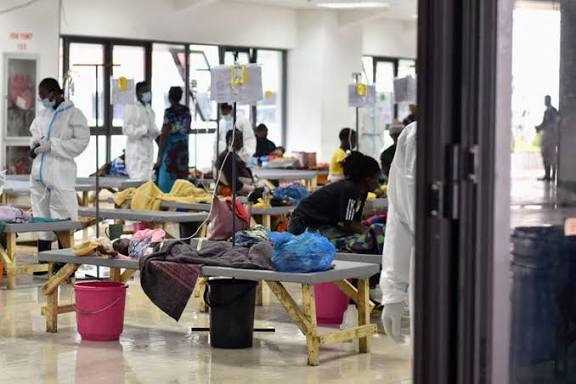
…Church services limited to two hours
Mike Mashiri
As the Cholera pandemic hits hard, churches in Zambia have been instructed to reduce their time of worship to two hours.
Ndiwa Mutelo, a senior official responsible for religious affairs, said that there will not be trading of perishable and prepared foods in all churches.
He advised to avoid handshakes and hugs.
Mutelo also instructed centres of worship to ensure the availability of handwashing points, safe drinking water and sanitisers for their members.
Minister of Health in Zambia, Sylvia Masebo, highlighted that the upsurge of cholera was putting pressure on the government resources, as a result there was need for aid form other stakeholders.
Zambia has a growing number of 7 004 cases since it recorded the first case in October last year.
It has since spread to 45 districts in eight the country's 10 provinces.
Meanwhile, Zimbabwe which is also affected is experiencing similar pressure on health care facilities.
Related Stories
As a way of dealing with the tension, the Ministry of Health and Child Care, Harare City Council and the support from World Health Organisation, WHO, has started decentralising cholera treatment centers.
Two centres located in Highfields and Budiriro polyclinics with 10 bed capacity are now up and running.
Recommended water and sanitation prerequisites have been installed at both centres.
Harare City Health Services Director, Dr Prosper Chonzi said decentralization had a positive impact in dealing with cholera.
“Ideally, cholera cases should be managed at source and people have been coming to BRIDH where we normally manage severe cases and this has overwhelmed the facility.
“This process of decentralization of services is really key to improve quality of care,” he said.
Having treatment centers close to struck areas will be an advantage as patients with cholera will easily get treated without having to stand in long queues.
These new centers will also serve as focal points for health education, giving people necessary information about safe water sources, hygiene practices and proper sanitation measures.
The construction of the Highfield and Budiriro hubs brings the total number of WHO supported centres to nine and a total of 130 beds distributed.
In Manicaland, two centres were established at Chiadzwa and Zvipiripiri Rural Health Centres, one at Pore Pore clinic in Masvingo, and one in Harare at BRIDH.
St Mary’s Polyclinic, Chitungwiza Central Hospital and Stoneridge Polyclinic have been given support to push their operations with money coming from the Health Resilience Fund, funded by the European Union, Gavi, The Vaccine Alliance and the Governments of Ireland and the United Kingdom.
Since January 5, 2024, 15 571 cases of cholera and 347 deaths have been reported in 57 districts.




















Leave Comments